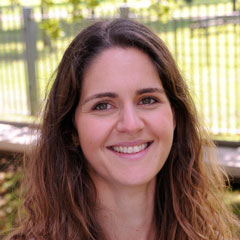Next Generation Sequencing (Virtual)
19–23 April 2021
Virtual course
Virtual training in next generation sequencing technologies and data analysis
Summary
Please note: Due to the ongoing Covid-19 pandemic, the 2021 Next Generation Sequencing course will once again be delivered in a virtual format.
Next generation sequencing has become the premier tool in genetic and genomic analysis. This virtual course provides interactive training in the latest NGS platforms and techniques and their applications to research and healthcare.
The course will include theoretical and practical information on all of the next generation sequencing systems available and those on the near horizon. Technologies will be chosen from the latest short- and long-read sequencing platforms, including:
- PacBio
- Illumina MiSeq/HiSeq/NovaSeq
- Oxford Nanopore MinION/Flongle/GridION/PromethION
A key aim of the course is to allow participants to make informed decisions about which technology to apply to solve specific research questions they may face in the future. A variety of applications will be covered, e.g:
- target enrichment
- bacterial sequencing
- cancer genomics
- human variation analysis
- RNA-Seq (NB: The library preps demonstrated on the course will be WGS and not RNA-Seq, which will be covered in lectures)
In addition, All the basic techniques of post-sequencing data analysis will be covered in hands-on sessions (QC, alignment, assembly, variant calling, etc.)
Please note: For the data analysis components of the course, applicants will require a working knowledge of the UNIX/Linux operating system. This can be obtained by various methods and is essential to fully benefit from the course. There are numerous online introductory tutorials to the UNIX/Linux operating system and command line, including:
http://www.ee.surrey.ac.uk/Teaching/Unix
http://swcarpentry.github.io/shell-novice/
This course is not meant to replace the manufacturers’ training normally supplied with new instruments, nor is it intended to be a training course for those solely interested in NGS data analysis (please refer to our website for dedicated bioinformatics courses).
Programme
For our virtual courses, we use video conferencing (Zoom) and instant messaging (Slack) applications along with other online and virtual machine (VM) teaching resources to deliver the different elements of the course as interactively as possible.
The course will run approximately 10:00-17:00 (BST) daily. Some teaching materials will be pre-recorded but participants must be available to attend live, interactive sessions online between these times.
The programme will include virtual lectures, discussions and hands-on, interactive sessions covering the following topics:
Library Prep
- Making high-quality libraries from samples
Sequencing
- Overview: Motivation and fundamental concepts
- Detailed description of prominent sequencing technologies: current and emerging platforms
- Preparing chips for sequencing and performing sequencing runs on various platforms
Data analysis
- Data QC: How to determine if a run has performed well
- Alignment to a reference, de-novo assembly, SNP and structural variant-calling of next generation DNA and RNA data
- IT and data storage problems
Learning Outcomes
On completion of the course, participants should be able to:
- prepare high-quality libraries for NGS
- set up a sequencing run
- critically assess a sequencing run and distinguish between good and poor quality data
- appreciate the advantages and disadvantages of different sequencing technologies
- process data, align and call variants
Instructors and speakers
Course lead instructors

Jacqueline Keane
Wellcome Sanger Institute, UK

Louise Aigrain
Wellcome Sanger Institute, UK

Michael Quail
Wellcome Sanger Institute, UK
Accompanying the lecture and practical sessions will be a series of seminars by invited speakers, who will highlight their ground-breaking work in the applications of next generation sequencing.
How to apply
Prerequisites
Applicants should be postdoctoral scientists, senior PhD students or junior faculty members actively engaged in or soon to commence research involving next generation sequencing instrumentation.
For the data analysis components of the course, applicants will require a working knowledge of the UNIX/Linux operating system. This can be obtained by various methods and is essential to fully benefit from the course. There are numerous online introductory tutorials to the UNIX/Linux operating system and command line, including:
http://www.ee.surrey.ac.uk/Teaching/Unix
http://swcarpentry.github.io/shell-novice/
Please note that due to the virtual format for this course, participants will require minimum computer specifications and internet access to fully benefit. A guide to these requirements can be found here (PDF).
How to Apply
Please click the Apply button above to begin the online application process. Places are limited and will be awarded on merit. If you have any problems with the online application process, please contact us.
Please note: Applications must be supported by a recommendation from a scientific or clinical sponsor (e.g. supervisor, line manager or head of department). A request for a supporting statement will be sent to your nominated sponsor automatically during the application process. Applicants must ensure that their sponsor provides this supporting statement by the application deadline. Applications without a supporting statement cannot be considered.
Cost
| Cost | ||
| *Course fee | £200 | Due to the ongoing Covid-19 pandemic this course will once again be delivered in a virtual format. |
*The course fee is subsidised by Wellcome Genome Campus Advanced Courses and Scientific Conferences and applies to non-commercial applicants. Please contact us for the commercial fee.
Bursaries
Limited bursaries are available (up to 50% reduction on the course fee) and are awarded on merit. If you would like to apply for a bursary, please complete the bursary section of the online application form.
Where there are many bursary applications, the selection committee may issue smaller amounts.
Bursaries can be applied for as part of the course application form. Applicants will be notified of a bursary award along with their place on the course, usually within one month of the application deadline. The decision of the selection committee is final.
Please note that both the applicant and sponsor are required to provide a justification for the bursary as part of the application.
Additional funding opportunities
Visit our support page for additional financial support currently available.
Accommodation services phishing scam – please be vigilant. More information.
Testimonials
Feedback from the 2020 virtual course:
I was hesitant about how useful a virtual course would be. However, the resources provided were hugely informative and the trainers extremely knowledgeable. The course videos were also great at demonstrating the techniques and facilities.
There was a really good mix of different topics with different levels of complexities. I felt the course material was extremely well put together.
Impressively organised for first remote course. Very well structured. Great teaching. Excellent small groups with available tutors for bioinformatics aspects.
The breadth and depth of information provided by this course was amazing and it was delivered in such a way that allowed us to grasp the fundamental concepts before moving onto the practical aspects and analyses. I think this course will prove to be a game changer in my research career and I am so grateful to everyone involved in making it work so well despite the obvious challenges!
We were able to interact in breakout rooms which felt great to interact with others on the course and instructors. We were provided with a lot of information and the variation of learning: presentations, practically and through questions which was great!
I learned some tips, tricks and new approaches to analyze my data and utilize command line to process new data.
All the sessions were well designed and thorough. I particularly liked the bioinformatics sessions. The smaller breakout groups, made it easier to ask questions if you had problems, and the sessions covered everything from basics through to more advanced techniques.

